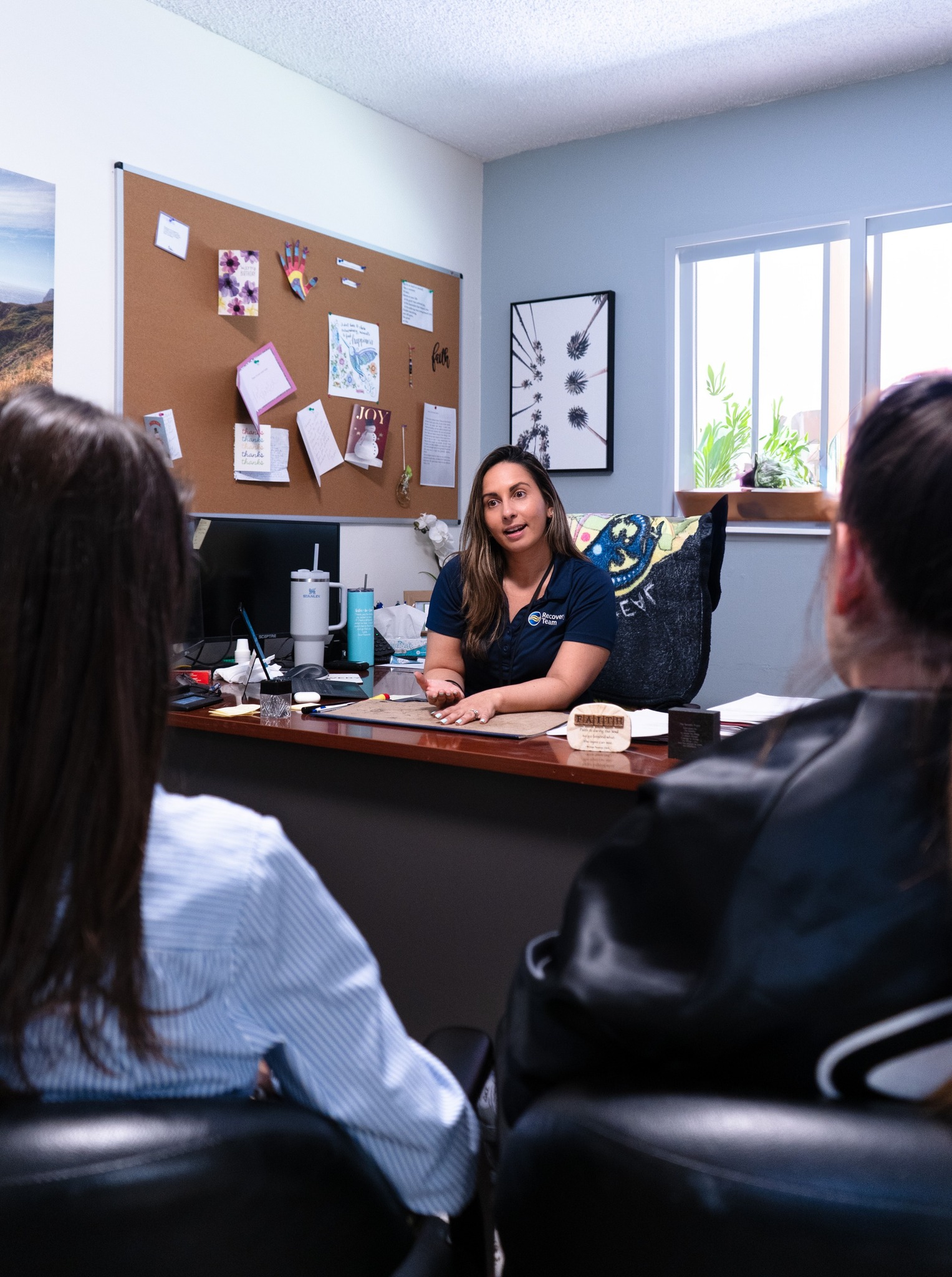Transitional Living Program
More Treatment Options
Call us today to get the support and guidance you deserve.
The Bridge Between Treatment and Your New Life
Moving forward after addiction treatment can feel overwhelming. You’ve made progress, but stepping back into daily life isn’t always easy. That’s where our transitional living program comes in—a safe, supportive place where you can build confidence, regain independence, and keep the structure that helps you stay on track.
You’ll have a stable home, access to counseling, and a community that understands what you’re going through. It’s a space designed to help you feel secure while you focus on what’s next—whether that’s finding a job, strengthening relationships, or simply maintaining the progress you’ve made.
Our Transitional Living Program Tracks
Continued Support Through Therapy and Counseling
Here, you’ll live in a safe, substance-free setting that helps you stay grounded and encourages healthy habits. With a clear structure—set meal times, daily check-ins, or household responsibilities—you’ll develop the consistency needed to build a strong foundation for long-term success. These routines help you stay on track and offer the opportunity to practice skills learned in therapy that prepare you for life after transitional living.
We offer consistent emotional support through counseling, peer groups, and ongoing check-ins with our team. You’ll have access to individual therapy and group sessions that allow you to work through any challenges you may face along the way.
The combination of routine, support, and accountability at our center creates an environment where you can truly thrive. Our transitional living program is designed to help you build confidence, gain independence, and stay on track as you transition into the next phase of life.
Personalized Therapies
In our transitional living program, you’ll have access to a variety of therapies that are tailored to support you, including:
- Cognitive Behavioral Therapy (CBT) – Helps identify and change negative thought patterns.
- Dialectical Behavior Therapy (DBT) – Aids in improving emotional regulation and developing healthier coping strategies.
- Acceptance & Commitment Therapy (ACT) – Helps you accept difficult thoughts and feelings while committing to actions that align with your values..
- Family Therapy – Strengthens relationships and fosters a more supportive home environment.
Transitional living services provide a supportive, structured environment to help individuals bridge the gap between treatment and independent living. With guidance, accountability, and life-skills development, clients build a strong foundation for lasting recovery and self-sufficiency.
A Helping Hand in Your Job Search
Whether you’re starting fresh or returning to the workforce, we’ll help you search for opportunities, create a solid resume, and practice for interviews. We also connect you with local employers who value reliable, motivated workers, giving you a better chance at landing a job that fits your skills and goals. We also offer guidance on workplace communication, time management, and budgeting so you can build long-term stability.
Backed by Hundreds of
5-Star Reviews
You’re not alone in this! Thousands of people have come here over the years feeling lost and unsure recovery was possible. The true healing they found proves that change always is possible.
What to Expect in Transitional Living
In transitional living, you’ll find a supportive, structured environment designed to help you continue making progress as you adjust to life after treatment. You’ll have a safe, substance-free space to call home, with access to counseling, therapy, and other resources that help you focus on your goals.
A structured environment, with routines like meal times, daily check-ins, and household responsibilities, helps create consistency and stability as you build independence.
Evidence-based therapies, such as Cognitive Behavioral Therapy (CBT) and Dialectical Behavior Therapy (DBT), help address negative thought patterns and improve emotional regulation to support lasting change.
Peer support provides a sense of community, allowing you to connect with others who understand your experiences and offer encouragement.
Your Questions, Answered
We understand you may have questions about what to expect in transitional living, and we’re here to help. Below, you’ll find answers to some of the most commonly asked questions about the program, from daily routines to support services, so you can feel more confident as you explore your options. Feel free to reach out if you don’t see the answer you’re looking for. We are happy to help!

The length of stay depends on your individual needs and progress. Most people stay for a few months, but the goal is to give you the time and support you need to feel confident and ready to move forward at your own pace.
You can work or attend school while in transitional living if it fits within the program's structure. Balancing work or school with the support and routines in place can help you build independence, but it's important to ensure that it doesn’t interfere with your overall progress in the program.
Once you're ready to transition, support is available to help you find a job and secure housing. This includes connecting you with resources, assisting with job searches, and guiding you through housing options so you can move forward smoothly.
Available 24/7
The Next Step Is A Simple Phone Call
Give us a 5-minute call for more information about our services. There is no commitment or judgement – we’ve been there before ourselves.
Contact us for more information :
Call Us
(800) 817-1247
Verify Insurance
100% Confidential
Follow Us
Social Media
Visit Us
4 Locations
